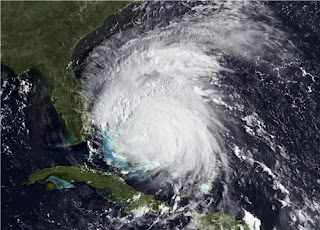The Great Hurricane Hype
Monday, August 29, 2011
The media coverage preceding the land fall and during the course of Hurricane Irene seemed to some as on overbearing stream of gloom and doom to come. Though I personally have no relatives and only a handful of acquaintances living on the eastern seaboard, I found myself perpetually glued to any form of media I could lay eyes on, waiting for news of the impending disaster.
Yet, the apocalypse which I had come to expect from this storm did not come. Please note that I strongly feel the deaths, injuries, and damages left in the wake of this storm are indeed tragedies, but this is not the tragedy that I expected.
This lead to a reflective question: why was I waiting to read about the world ending (or at least Jersey Shore being destroyed)? Was I, along with others, swept up in the great Hurricane Hype?
Julie Moos hits on some excellent point as to how media builds “hype” for a story/event. Moos defines (media) hype:
“Hype is not simply the difference between what I think matters and what you think matters. It’s not even the difference between what I think matters and what leads a newscast or a front page. Hype is the discrepancy between the real value of something and the perceived value of that same thing.”
Perhaps the Hurricane was “over-hyped” by incredibly zealous coverage. However, I firmly believe that if the hype saved lives, it is solidly justified.
What are your thoughts? Was Hurricane Irene over-hyped by the Media?
Read more...



